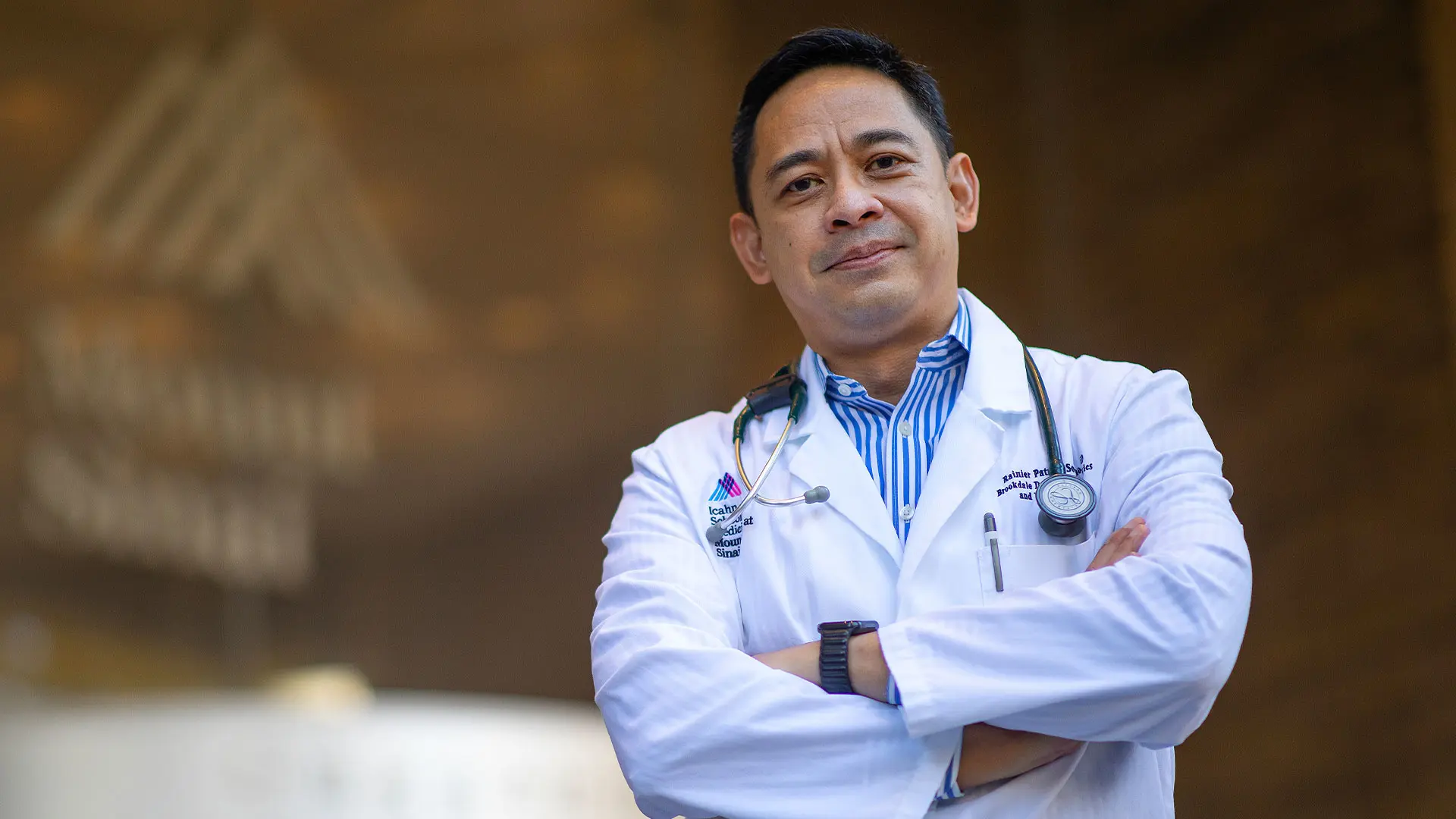In the fall of 2024, the Icahn School of Medicine at Mount Sinai launched a sweeping redesign of its medical school curriculum, known as ASCEND, to make it a more personalized and active learning experience for students. Just as important, the revamped format recognizes the importance of geriatrics and palliative medicine to training a new generation of physicians in the face of a rapidly growing population of older adult and seriously ill patients, coupled with a severe shortage of specialists to treat them.
In fact, in the coming years, more physicians of all specialties will encounter older adults and people with serious illnesses, and it is a critical part of the mission of the Brookdale Department of Geriatrics and Palliative Medicine to help Mount Sinai and the nation’s health care system more broadly prepare for this.
“One of the things we’ve tried to do is influence medical school curriculum from Day 1 to make sure that we are integrating principles of both geriatrics and palliative care earlier in the curriculum,” says Helen M. Fernandez, MD, MPH, Vice Chair of Education and Professor of Geriatrics and Palliative Medicine at the Icahn School of Medicine at Mount Sinai. “It’s not that everyone will go into geriatrics or palliative care, but they’ll carry these skills and this approach into whatever specialty they enter.”
When the next stage of the curriculum rolls out in early 2025, it will feature the first freestanding palliative care clerkship in the United States focused on seriously ill patients, to be conducted at the Brookdale Department of Geriatrics and Palliative Medicine. Another unique addition will be a chronic care clerkship that, at eight weeks, will be the longest rotation within the new medical school curriculum. The Brookdale Department is currently involved in the design of that clerkship, which will emphasize multidisciplinary care and patient education and will give prominence to rehabilitation, home care, and nursing home care. Clerkships are clinical rotations that are typically performed by third- and fourth-year medical school students following the first two years of preclinical training in science and basic medical concepts.

Rainier Soriano, MD, Senior Associate Dean for Curricular Affairs in Medical Education and Professor of Geriatrics and Palliative Medicine
“Nowhere are the health care principles we hold so dear at the Brookdale Department better represented than in the program’s Palliative Care Clerkship and Chronic Care Clerkship,” says Rainier Soriano, MD, Senior Associate Dean for Curricular Affairs in Medical Education and Brookdale Department faculty member. “These principles include a commitment to high-quality, interdisciplinary care that involves expert communication among the patient, their family, and their other care teams.”
ASCEND is the product of a multiyear initiative spearheaded by a redesign committee that included stakeholders from across Mount Sinai, including students, deans, educators, staff, and administrators. Dr. Soriano, who is also Professor of Geriatrics and Palliative Medicine at the Icahn School of Medicine at Mount Sinai, led the reenvisioning of the curriculum.
“As a physician with the broad-picture perspective of 26 years in geriatrics and education, I was in a good position to help shape and oversee how the new curriculum was structured,” he says. “The Brookdale Department’s position as the largest training program for geriatricians and palliative care specialists in the country also carried a good deal of weight. Our students have an opportunity to learn from leaders in the field and the most sought-after experts.”
Mount Sinai follows the path of other leading medical schools that have streamlined their education programs to give students stronger foundational blocks and more focused knowledge on which to build their careers.
To that end, the Pre-Clerkship Phase has been shortened from 24 to 18 months to give students more time in the Clerkship Phase (13 months) where they will rotate through increasingly vital fields such as acute and emergent patient care, chronic disease management, health maintenance, and preventive health. The final component of ASCEND, the 15-month Integration and Transition Phase, will prepare students for post-graduate training. It will include the new two-month Chronic Care Clerkship, along with other advanced clinical training and faculty-mentored scholarly projects.
Dr. Soriano emphasizes how much the retooled curriculum aligns with the goal of training a new generation of health care providers.
“Not only do they need to know about obstetrics, pediatrics, and surgery, but they need to be grounded in the care of patients who repeatedly see us for serious illness and chronic conditions,” he says. “In short, we need to be attuned to the changing needs of our patients, and it’s gratifying to know that the Brookdale Department is at the center of training future physicians to be where the population is headed.”
